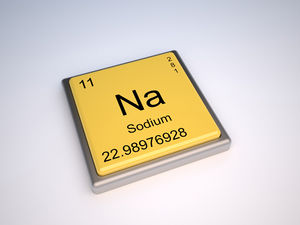Homeopathic Natrum muriaticum
| See Also | Homeopathic Monographs |
|---|
Natrum muriaticum is a psychologically complex and poignant remedy. The hallmark emotions are typically deep grief and sorrow, especially when a person is highly sensitive yet tends to build a psychological wall and hide their emotions. As holding in of feeling is a typical characeristic, there are a number of physical symptoms that are often correlated and helped with this remedy.[1]
Source
- Mineral: Natrum muriaticum, also known as Sodium Chloride
- Short Form: Nat-m; Nat-mur
Indications
The following are the main indications for Natrum muriaticum.[2], [3]
Acute Conditions
- Herpetic eruptions especially on the lips, face, corners of nose or mouth. Often triggered by sun exposure, or emotional upset
Chronic and Constitutional Conditions
- Grief, Depression, sorrow and other suppressed or chronic emotional states, especially when accompanied by desire to be alone, worse consolation, holds in their emotions
- Headache and Migraine brought on by grief, worse light, sun or reading, Hammering, throbbing, bursting, jerking pain. Dry mouth and thirst. Nausea and watery vomiting. Faint and pale. Sad, wants solitude and averse to sympathy.
Children
- well-behaved, prefers to be left alone if upset, mature beyond their years, strong need for affection but dislikes being consoled, overly vulnerable, responsible about their duties and homework.
Other common conditions: Hayfever, Aphthae, Glossitis, Asthma, Back pain, Allergies, Chronic Fatigue Syndrome, Type II Diabetes, Hypertension, Obesity, Premenstrual Syndrome, Sexual dysfunction, Thyroiditis
- As a tissue salt, Natrum muriaticum is often used for coldness of hands and feet, for watery discharge of the nose, coryza with fluid secretions, hay fever, loss of sense of smell, worms, constipation, excessive saliva and tear flow. It is also used for depression and indifference to comforting.
Characteristics
- Triggers: grief or disappointment in relationships or in life, sun exposure
- General: holds in their emotions, serious and responsible, sensitive to the slightest reprimand or insult, wants to be left alone when upset or when not feeling well
- Worse: consolation, 10:00 A.M., heat, being in the sun
- Better: open air
- Psychological: may become hysterical over time or in acute situations, kind, sympathetic to other's problems, doesn't reveal secrets, pouty, sulky, often considered cold or closed emotionally, sad yet unable to weep or weeps involuntarily, deeply affected by music, fastidious
- Other symptoms: cracks in the corners of the mouth or on the lips, Aphthae of mouth, gums, tongue. Lacrimation of the eyes which is worse open air or wind. Unable to urinate in front of others, vaginal dryness, insomnia
- Food and drink: desire for salty food, pasta, bread, lemons, aversion to slimy food
Prescribing Considerations
Homeopathic remedies are prescribed based on homeopathic principles and after a detailed case taking. The prescription recommendations below are provided only as a guide. It is always recommended to consult with a naturopathic doctor or homeopathic practitioner prior to taking any homeopathic remedies, especially if your health is compromised or if your symptoms do not resolve in a timely fashion. The general recommendations for Natrum muriaticum include:[4]
- The very highest potencies often yield most brilliant results and in infrequent dosage.
- Complementary: Apis mellifica, Sepia, Ignatia
- Compare: Aqua marina, Sal marinum (sea salt), Natrum selenicum, Natrum silicum, Ignatia, Sepia, Thuja, Graphites, Alumina
- Antidotes: Arsenicum album, Phosphorus, Spiritus nitri dulcis
References
- ↑ Morrison Roger (1993) Desktop Guide, to Keynote and Confirmatory Symptoms Hahnmann Clinic Publishing.
- ↑ Hershoff Asa (2000) Homeopathic Remedies, A Quick and Easy Guide to Common Disorders and their Homeopathic Treatments Avery Publishing Group, New York.
- ↑ Ullman Robert, Reichenberg-Ullman Judyth (1997) Homeopathic Self-Care, the quick and easy guide for the whole family. Prima Publishing.
- ↑ Boericke W (1997) Pocket Manual of Homoeopathic Materia Medica and Repertory, a Chapter on Rare and Uncommon Remedies, B. Jain Publishers, India.
